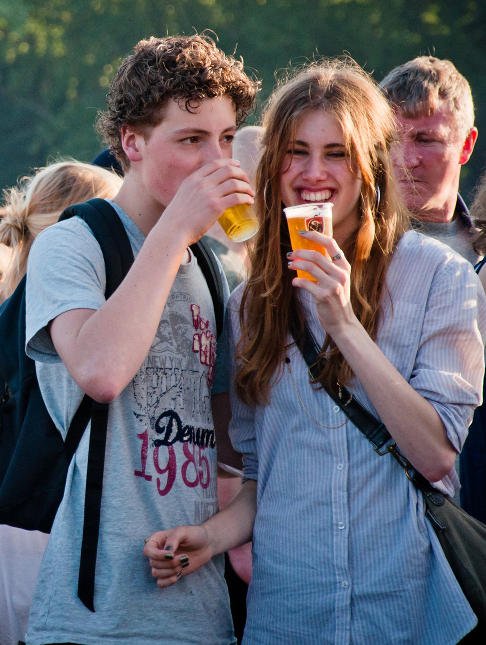
Is boredom a factor in binge drinking? Is it a pressure relief, or a way to fit in? Ms. Dressler examines these and other possible causes of this dilemma.
Many people are under the impression that Columbia University does not have a problem with campus drinking, at least not as much as the Big Ten, fraternity-oriented universities. In my past two-and-a-half years of experience as a student, I have witnessed student indulgence in a fair share of alcohol on a regular basis.
Binge-drinking often goes unrecognized because the medical definition for the term is not widely known. The practice is defined as the consumption of four alcoholic drinks for women or five for men in one sitting. While most of us who hear the term “binge-drinking” picture a college student hovering over a toilet in a fraternity rather than a Dean’s List student who is sitting in a bar after classes and enjoying their fifth or sixth drink, sadly enough, these two scenarios are both examples of binge-drinking.
An article in the Los Angeles Times on Sept. 9, 1999, claimed that studies show approximately three million college students consume alcohol, especially beer, with the direct intention of getting drunk. This number may not sound too alarming to many college students, especially considering the amount of bars found around college campuses throughout the country. However, when statistics show that 44 percent of students are binge-drinkers, that binge-drinking results in 40 percent of academic problems, and when about three dozen deaths a year are caused by excessive drinking problems, these should be signs to college administration and students that something is wrong. Of course, the bottom line is that the majority of college students, 56 percent, are not binge-drinkers, so no one should feel the need to engage in excessive amounts of alcoholic consumption simply because “everyone else is.” In reality, they are not.
Root Cause?
The root and cause of binge-drinking are not clear. Naturally, many campuses do not have the resources that are provided to us by New York City. Pretty much the only form of entertainment that exists for a student at UCONN involves drinking at parties and athletic events. While we have the choice of going to Homecoming, hearing a concert at the Wetlands, or seeing Van Gogh exhibit for free at the Met, most college students do not even leave the confines of their campus to seek out entertainment. Of course, boredom easily ensues and drinking often acts as a substitute for entertainment.
Moreover, our 114th St. is just that — a street. At many universities, this type of area constitutes half of campus. Although fraternities and sorority parties are great social outlets for many at Columbia and Barnard, for those that are not involved in that scene, there is no pressure to go somewhere one may not feel comfortable. A large number of college students participate in activities that they may not care to because of a lack of options to do otherwise.
However, a lack of exciting activities outside of one’s college is only part of the problem. After all, the drinking that students partake in whether at the West End , Soha, or the Art Bar down in Chelsea, is definitely still prevalent. At any college, but at especially an Ivy League like Columbia, there are constant pressures — pressures to get excellent grades, make friends, live up to expectations after graduation, etc. Most students need to let loose on the weekends for obvious reasons and forget their worries temporarily. Furthermore, for many students, getting drunk is a way to fit in and gain a sense of belonging.
Dangerous desires
However these desires are often dangerous for several reasons. When one drinks to feel confident or talk to someone whom they normally would not, state-dependent learning develops. One begins to believe that the only way to get a date or appear sexy and rid oneself of insecurities is to get drunk. Although many drinkers will undoubtedly deny this form of conditioning, it is a common problem. As intelligent as Columbia and Barnard students are, they are still manipulated by a media that links physical beauty with alcohol.
The problems associated with binge-drinking and its prevalence among young adults are not easily solved. Those who do not abuse alcohol certainly should not be prevented from having drinks because some of their peers have a more serious problem. Yet, one should take responsibility for the amount of alcohol he or she consumes. At the same time, though, realize that what seems to be mainstream, really, is not, and most students nationally are NOT regular binge-drinkers. Getting wasted every night is not what we pay money to come to college for. Wouldn’t it be a waste to spend four years in such a state that one hardly remembers anything after graduation?
Reprinted with permission granted by the Columbia Spectator
Columbia University, NY, NY
By Suzanne Dressler, junior, Barnard College, Columbia University


